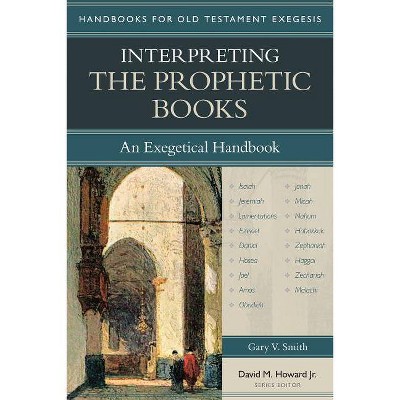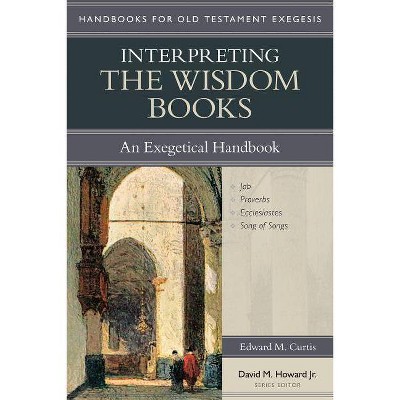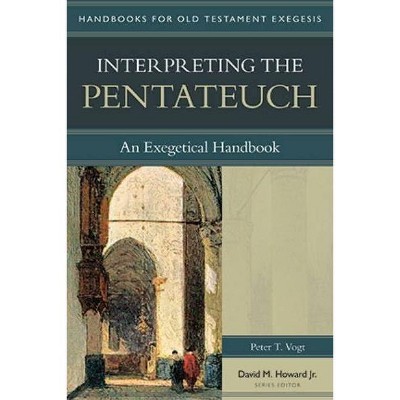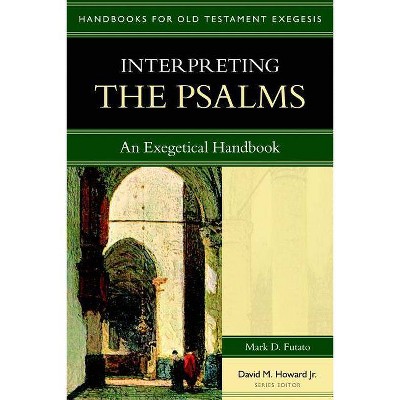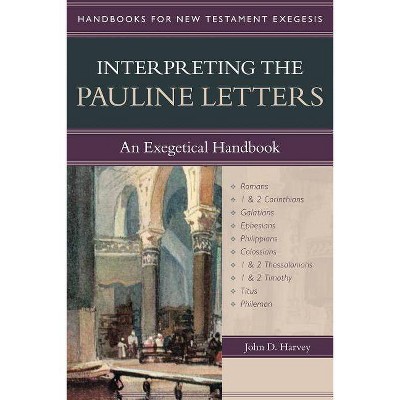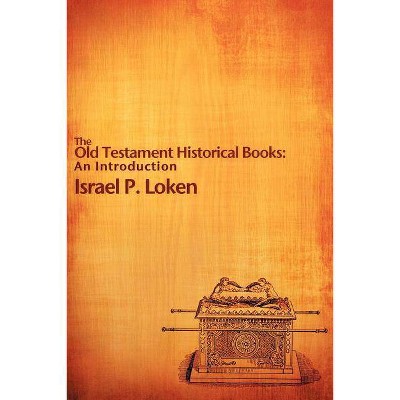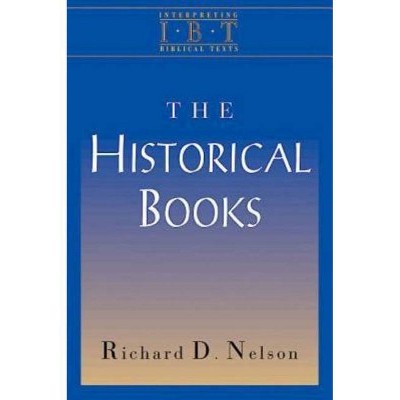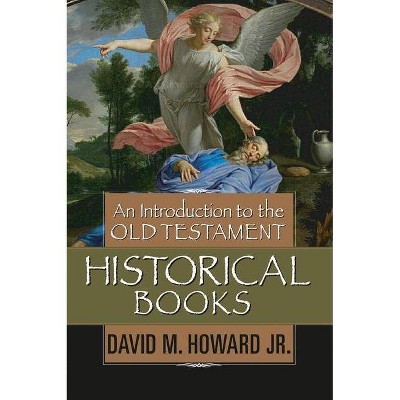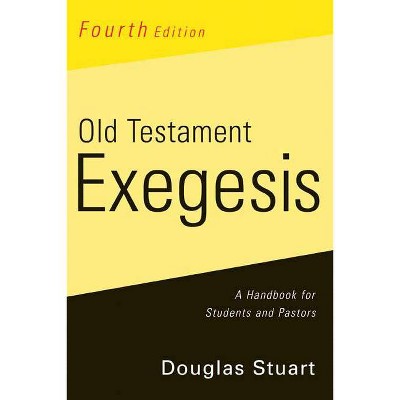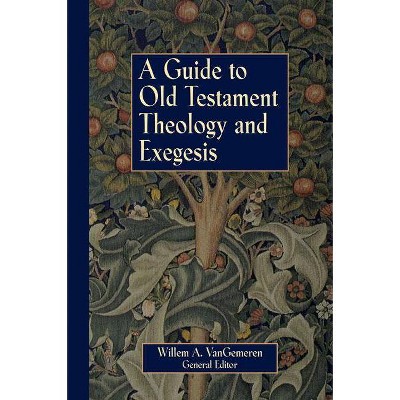Interpreting the Historical Books - (Handbooks for Old Testament Exegesis) by Robert B Chisholm (Paperback)
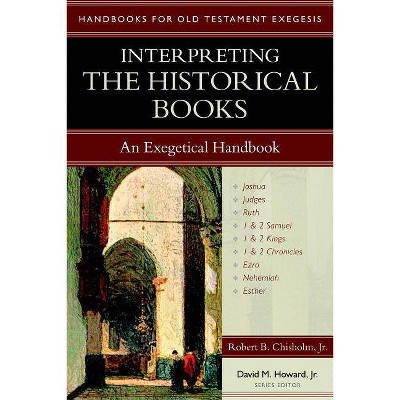
Similar Products
Products of same category from the store
AllProduct info
<p/><br></br><p><b> Book Synopsis </b></p></br></br>The Old Testament displays a remarkable literary and theological unity through a variety of genres. But applying a single, one-size-fits-all method of exegesis can lead to confusion and misunderstanding. A valuable reference tool for students and pastors, the Handbooks for Old Testament Exegesis (HOTE) series provides readers with an enhanced understanding of different Old Testament genres and strategies for interpretation. The inaugural volume in the HOTE series, Interpreting the Historical Books begins by exploring the components of narrative-setting, characterization, and plot-and then develops the major theological themes in each of the Old Testament historical books (Joshua, Judges, Ruth, 1-2 Samuel, 1-2 Kings, 1-2 Chronicles, Ezra, Nehemiah, and Esther). As readers work through Interpreting the Historical Books, they will begin to see and interpret the narrative writings as the writings were intended to be understood. A glossary defining technical words and samples of moving from exegesis to proclamation make this handbook practical and user-friendly. All written by accomplished teacher-scholars at leading evangelical schools, forthcoming handbooks include the following: Interpreting the Psalms Mark D. Futato (Reformed Theological Seminary, Orlando) Interpreting the Prophets Michael A. Grisanti (The Master's Seminary) Interpreting the Wisdom Literature Richard L. Schultz (Wheaton College) Interpreting Apocalyptic Literature Richard A. Taylor (Dallas Theological Seminary) Interpreting the Pentateuch Peter T. Vogt (Bethel Seminary)<p/><br></br><p><b> Review Quotes </b></p></br></br><br>My interpretive first love is Old Testament narrative. How I wish Handbooks for Old Testament Exegesis: Interpreting the Historical Books (Kregel) had been available during my formative years of training. It provides a wealth of information, tools, and samples for anyone interested in understanding and proclaiming biblical narrative. Knowledge of the biblical languages can be a great step forward in navigating the objective truth. Invitation to Biblical Hebrew: A Beginning Grammar could offer a great refresher course for those whose first year of Hebrew is in the foggy past. For those who already know the difference between a Hiphil or Niphal, a Workbook for Intermediate Hebrew will take you farther into your journey into the original languages. This workbook teaches syntactical analysis of the Hebrew text.--John Henry Beukema "Christianity Today" (4/1/2007 12:00:00 AM)<br><br>The strength of Interpreting the Historical Books is Chisholmís skill at articulating and illustrating a reading strategy for Hebrew based exegesis. Too many seminary students spend semesters learning the rudiments of the biblical languages, but never learn how to apply the knowledge that they have gained to the actual practice of interpretation. A careful reading of Interpreting the Historical Books will empower the student to deploy her understanding of Hebrew for a deeper engagement with the biblical text than is possible for those who rely only on English translations.-- "RealMinistries.org" (7/1/2007 12:00:00 AM)<br>
Price History
Price Archive shows prices from various stores, lets you see history and find the cheapest. There is no actual sale on the website. For all support, inquiry and suggestion messagescommunication@pricearchive.us
